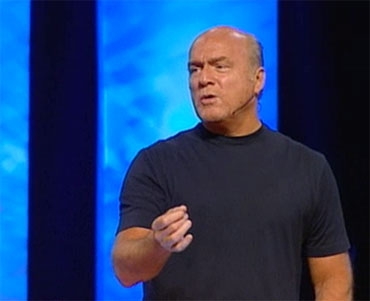Conscience dies when people commit one 'little' sin after another—Pastor Greg Laurie

Everybody is born with a conscience, says Pastor Greg Laurie, but there are a lot of things in life that affect it.
"A conscience is something God has placed in every man and every woman. We all are born with a conscience. It is that sense of right and wrong, a smoke alarm, if you will, that goes off when there is trouble," he writes in an article for WND.
Laurie then uses the story of King Herod and John the Baptist from the Bible to state his example of what it is like to lose one's conscience. The two men are polar opposites of one another, but Herod "feared John and protected him, knowing him to be a righteous and holy man. When Herod heard John, he was greatly puzzled; yet he liked to listen to him," according to Mark 6:20.
Despite his respect for John, Herod still lived a life of sin. He seduced his brother Philip's wife Herodias then took her as his own wife. "But it gets worse. Herodias also was the daughter of Herod's half-brother, making her Herod's niece. And if that weren't enough, he lusted after Herodias' daughter Salome, and Herodias was fully aware of it," says Laurie.
John knew about Herod's lust, too, and he even called Herod out on it. "John was honest with Herod, and I think, in reality, John was Herod's truest friend because he told Herod the truth," says Laurie. "A true friend will occasionally wound – not to hurt but to help. If you have a friend who tells you the truth, don't lose that friend."
Sadly, Herod did not value that honesty. When Salome danced in front of Herod during his birthday celebration, he was so pleased with her that he promised to give her whatever she wanted. Upon the advice of her mother, who hated John so much, Salome requested for the head of John. Herod heeded her request.
"Why did Herod do such a horrible thing? Two things prompted him: sexual lust and a desire to impress and please others. And unbeknownst to him, his conscience was dying," laments Laurie.
Conscience dies, too, when people allow themselves to commit one "little" sin after the other, says Laurie. "We don't realise that sometimes the repercussions of sin don't hit us until later. The death of a conscience starts with small things that invariably become larger things. When you do something you know is wrong, continue on and try to cover it up, your conscience becomes hardened, callous and resistant."
Laurie advises people to go to Jesus when they find themselves being trapped by sin, since only He can forgive sin and "re-sensitise" people's conscience.











